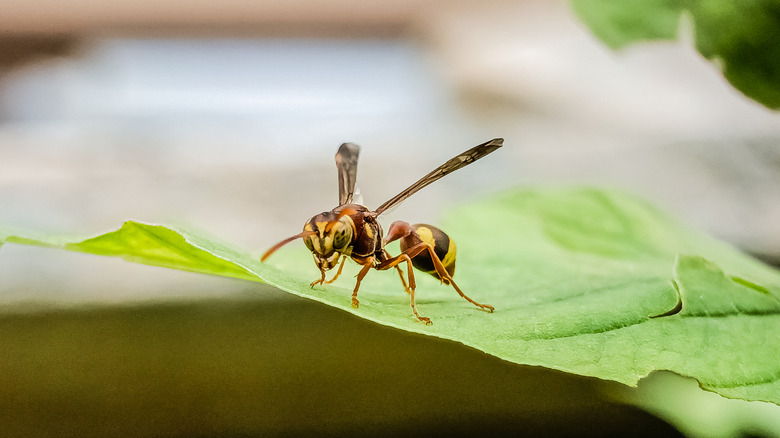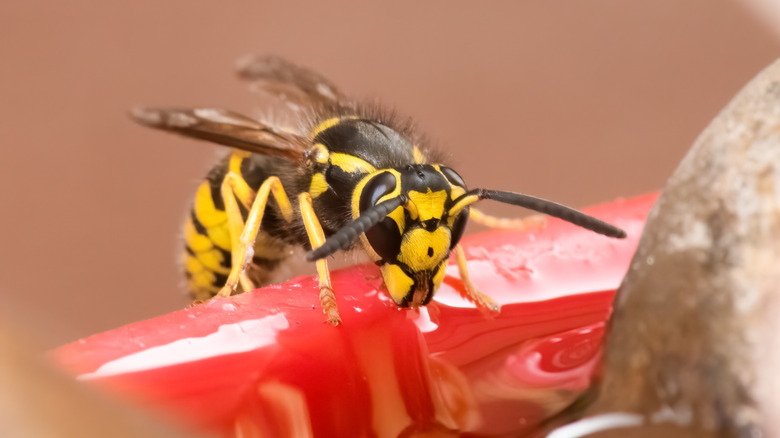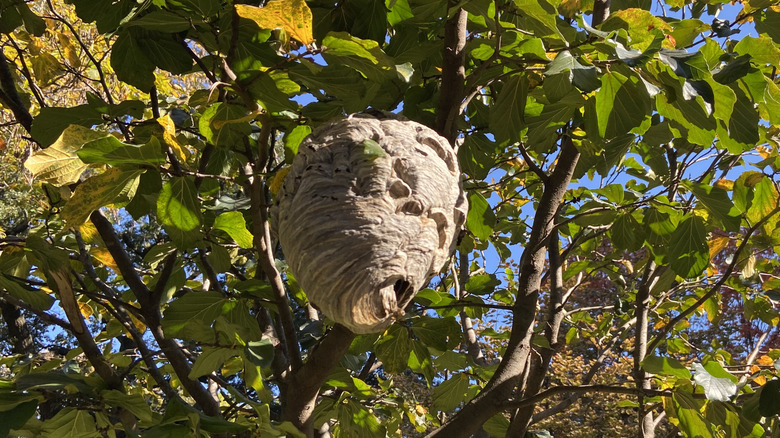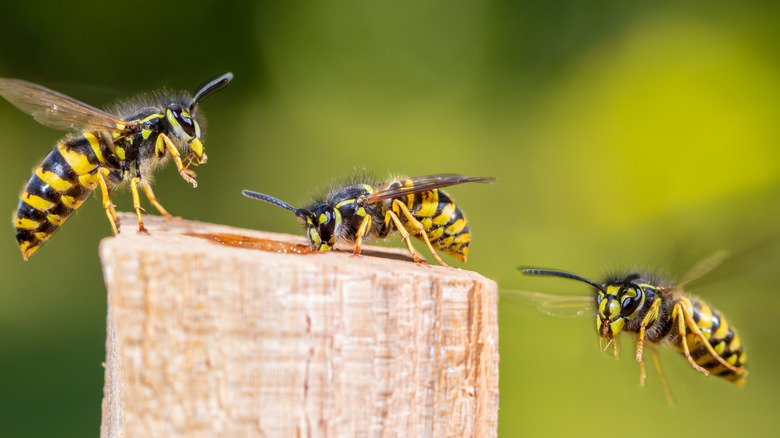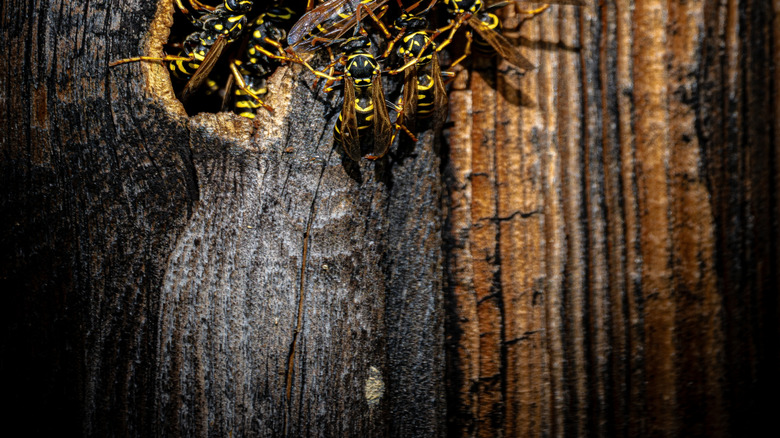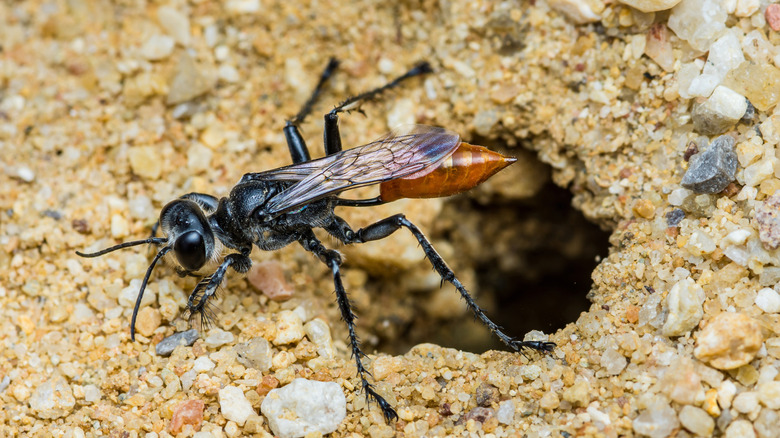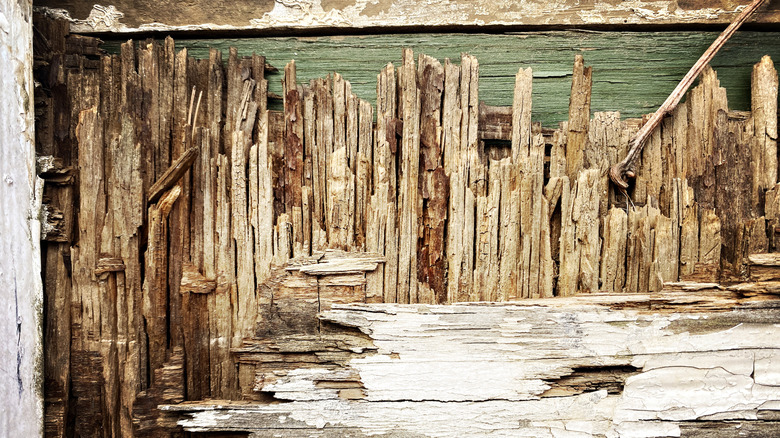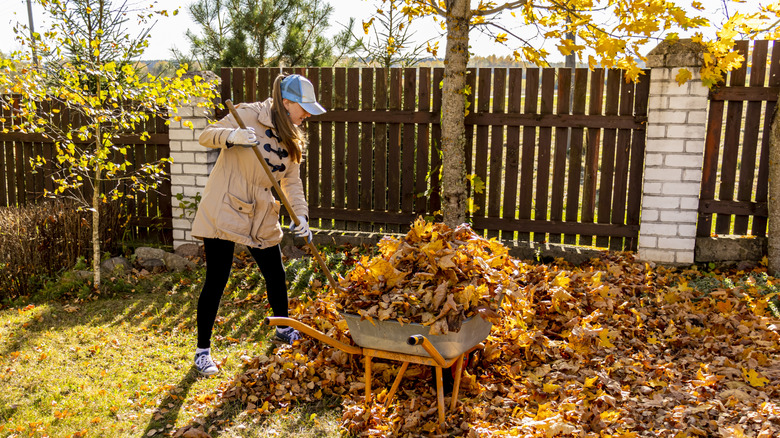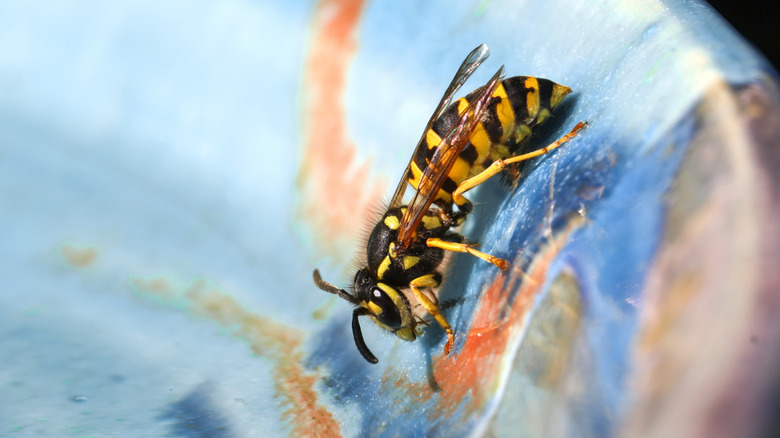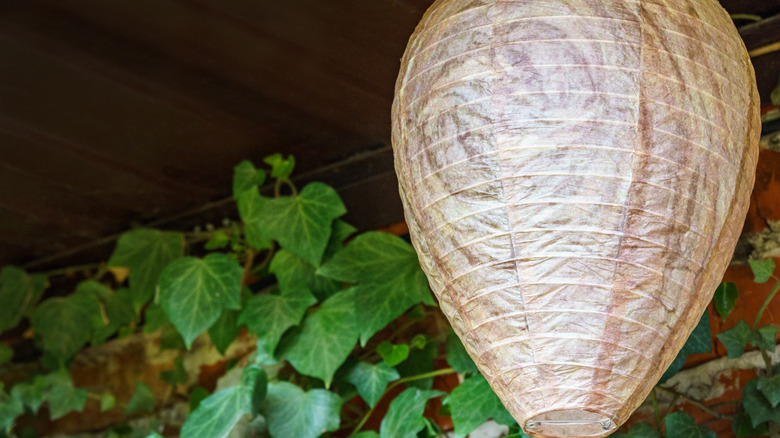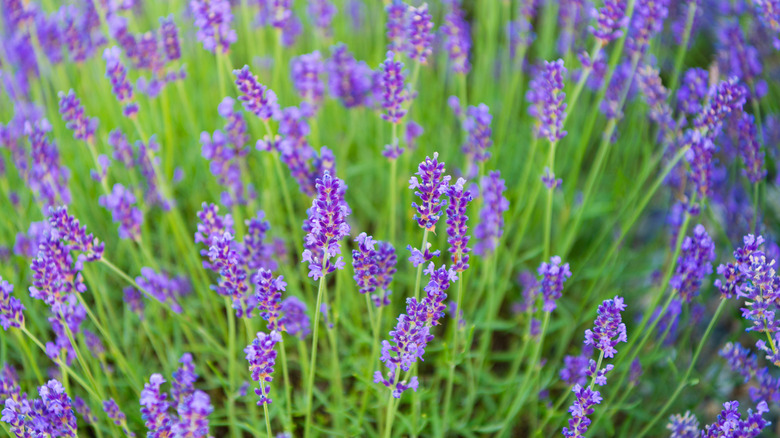10 Ways To Prevent Wasps From Overwintering Near Your Home
Wasps are pests that most people simply don't enjoy having around. Though they do have some benefits for your garden, they are aggressive, and their stings are painful and sometimes even deadly. They're also not the easiest to keep away from your property. Because of their aggression, removing nests or using insecticides can be a dangerous practice once wasps are already established. This is why it is important to try to stop them early on. One of the best ways to do so is to catch them and prevent a queen wasp from overwintering in your yard and starting a new nest when the temperatures increase.
If you are seeing the return of wasps every spring, it may be a sign that they're overwintering somewhere around your home. While you could go through the efforts to hunt down queens, instead, the key is to make your yard look unappealing enough that the queen will search for somewhere else to create a nest. There are a few ways to do this. Most of the steps involve eliminating places for the queen to nest and getting rid of items that may be appealing to a wasp colony — cleaning up your yard, closing up any large holes in the outside of your home, and removing food sources, for example. It can be a lot of work to stay on top of it, but it's definitely worth it to not have these dangerous stinging insects close to your home come spring.
Eliminate food sources
Wasps tend to place their homes in places where they have easy access to food. In fact, this is one of the things that may be attracting wasps to your home and garden. Unfortunately, things like sugar water tend to be delicious for both hummingbirds and wasps. If you really want to keep these annoying creatures away, you may have to take these feeders down. Additionally, trash, aphids, other small insects, leftover food, and sodas attract these pests. Keep your yard clean, keep your trash closed, and reduce the presence of other insects as much as possible.
Remove old nests
There are mixed reports on whether it is useful or not to actually remove wasp nests in the fall. Since wasps don't reuse them, there is no chance of them taking advantage of an already-built one. In fact, some people think leaving it may actually help keep them away. However, if you go to remove it early enough in fall, there is a chance you may find that the queen is still inside and hasn't gone dormant yet. This means it could be a good chance to kill her before she builds a new nest next year.
Remove old pheromones
One of the reasons why you may want to remove an old nest is because of the pheromones. Even after a colony dies off, there are likely still smells lingering around, which tell other wasps that your yard is a good place to set up their home. To stop the signal from going out, spray the area with dish soap and water after removing the nest. You can also paint over the area the nest used to be and put a few drops of strong-smelling oils around the space.
Seal up any small holes
Queen wasps, which are the ones that overwinter, don't spend the season in an old nest. Instead, they find a small hole and hide in there until it's time to come out in the spring. To stop them from doing so in your yard and home, you will need to go around and repair any holes where they could hide, including cracks and gaps in siding and wood. For bigger openings and ones you can't fully seal up, cover the area with screens that have holes too small for wasps to fit through.
Filling holes in the ground
In addition to covering up holes around your home and other structures you may have on your property, you will need to cover up holes in the earth, too. Old snake and chipmunk dens are used by some wasps to create nests in the spring. It may also be worth understanding how to spot a yellow jacket ground nest and how to get rid of one. While you may not be able to completely prevent wasps setting up shop with this method, covering all the holes you can find outside helps.
Fix up wooden structures
In addition to sealing up holes in your structures, you may want to go ahead and remove or replace any old or rotting wood. Wasps make their nests out of materials like weathered wood that they then chew up to a pulp and use to create the shapes they want. Because of this, removing materials like peeling wood that they can easily turn into nests may stop them from using your yard for their next home. This is especially true for larger colony species like hornets.
Clean up
One of the most impactful ways to prevent wasps from overwintering in your yard is to make sure they don't have places to overwinter. The best way to do that is to remove spaces they could use. Before winter hits, clean up your yard, removing old leaves, debris, rotting fruit, and tall grasses where a queen wasp might make her home. Cleaning up also prevents other critters from making a home in your backyard, which is why not taking time to clean your space is one of the mistakes to avoid when maintaining your yard in the fall.
Standing water
Standing water is another thing that attracts wasps to your yard. Like food, they prefer to build a home somewhere they can have quick access to a place to drink. If you own a pond or bird bath, there might not be much you can do to stop these pests from drinking water. However, you can reduce the likelihood they will find plenty to drink by regularly flipping over any tarps, buckets, or objects that gather water from your sprinkler or rain. This is also the part of your home that's attracting mosquitoes, and you didn't realize it.
Set up fake nests
While real nests can be ugly and contain some pheromones that attract wasps back into your home, you can use fake nests to keep these pests away, as they are pretty territorial creatures. If they come across signs of wasps nearby, they may look for another place to stay. Therefore, they may not choose an area with fake nests. There is, however, some debate on whether this will actually work. It may be good to try this along with other deterrents, but it definitely shouldn't be used as a solo preventative.
Grow wasp-repellant plants
If you don't want to use chemicals to kill off and repel wasps, you can go with natural methods to further entice them to stay away. There are plenty of stunning plants that help keep wasps out of your yard, including lavender (Lavandula angustifolia) and mint (Mentha spp.). Their strong and unique scents do a good job of repelling insects like wasps while attracting pollinators such as bees and butterflies. It's not foolproof, but it can certainly be one step towards helping you get your yard wasp-free using non-toxic methods.
